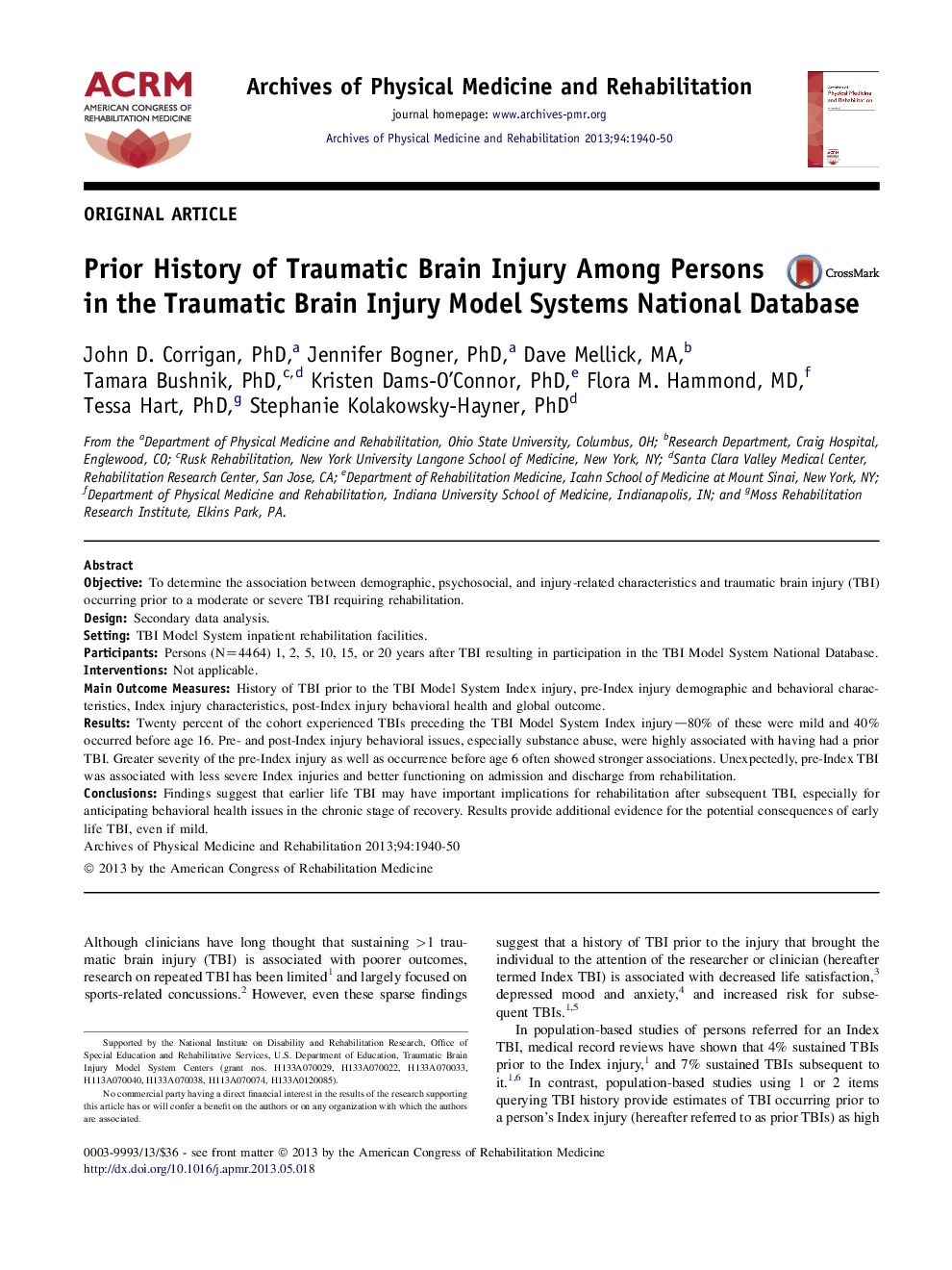| Article ID | Journal | Published Year | Pages | File Type |
|---|---|---|---|---|
| 3448620 | Archives of Physical Medicine and Rehabilitation | 2013 | 11 Pages |
ObjectiveTo determine the association between demographic, psychosocial, and injury-related characteristics and traumatic brain injury (TBI) occurring prior to a moderate or severe TBI requiring rehabilitation.DesignSecondary data analysis.SettingTBI Model System inpatient rehabilitation facilities.ParticipantsPersons (N=4464) 1, 2, 5, 10, 15, or 20 years after TBI resulting in participation in the TBI Model System National Database.InterventionsNot applicable.Main Outcome MeasuresHistory of TBI prior to the TBI Model System Index injury, pre-Index injury demographic and behavioral characteristics, Index injury characteristics, post-Index injury behavioral health and global outcome.ResultsTwenty percent of the cohort experienced TBIs preceding the TBI Model System Index injury—80% of these were mild and 40% occurred before age 16. Pre- and post-Index injury behavioral issues, especially substance abuse, were highly associated with having had a prior TBI. Greater severity of the pre-Index injury as well as occurrence before age 6 often showed stronger associations. Unexpectedly, pre-Index TBI was associated with less severe Index injuries and better functioning on admission and discharge from rehabilitation.ConclusionsFindings suggest that earlier life TBI may have important implications for rehabilitation after subsequent TBI, especially for anticipating behavioral health issues in the chronic stage of recovery. Results provide additional evidence for the potential consequences of early life TBI, even if mild.
